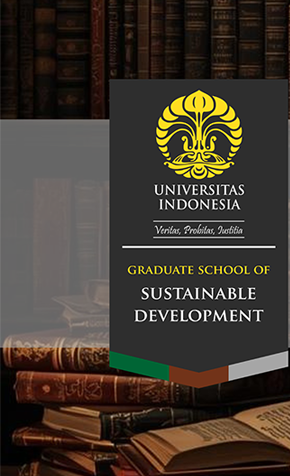Abstract
The interplay between terrorism and technology in Central Africa has intensified, particularly with Boko Haram’s rise. This research explores how emerging technologies enhance Boko Haram's operations and the corresponding counter-terrorism efforts. It examines Boko Haram’s use of social media for recruitment, encrypted messaging for secure communication, and advanced weaponry like drones and improvised explosive devices (IEDs). These technologies have expanded Boko Haram’s reach and operational efficiency, challenging security forces. The study also evaluates technological countermeasures implemented by Central African governments and international bodies, including surveillance, cyber intelligence, and data analytics. It assesses the effectiveness of these measures, noting successes and obstacles such as limited resources and rapidly evolving threats. Using a qualitative method, the research explores cybersecurity dynamics, including Boko Haram’s cyber-attacks on critical infrastructure and its use of the internet for radicalization. The study identifies gaps in current cybersecurity defenses and provides strategic recommendations for improvement. These include adopting advanced surveillance and data analysis tools, enhancing regional cooperation for intelligence sharing, and increasing investment in cybersecurity. The aim is to develop a more effective counter-terrorism strategy informed by technological advancements.
References
Alao, David Oladimeji, Goodnews Osah, and Eteete Michael Adam. "Unabated Cyber Terrorism and Human Security in Nigeria." Asian Social Science 15, no. 11 (October 24, 2019): 105. http://dx.doi.org/10.5539/ass.v15n11p105. Albert, Isaac Olawale. "Decapitation strategies and the significance of Abubakar Shekau's death in Nigeria's Boko Haram crisis." International Affairs 97, no. 6 (November 1, 2021): 1691–708. http://dx.doi.org/10.1093/ia/iiab173. Aloysius-Michaels, Okolie, Nwoke Ikemefuna Sunday, Enyiazu Chukwuemeka, Ozor Adanne Chioma, Oranye Henry Uchenna, and Nnamani Kelechi Elijah. "A Dialectical Inquest into the Boko Haram Insurgency in Nigeria: Exploring the Neoliberal State Thesis." Journal of Social Sciences Research, no. 612 (December 8, 2020): 975–84. http://dx.doi.org/10.32861/jssr.612.975.984. Anzalone, Christopher. "Salafism in Nigeria: Islam, Preaching, and Politics." American Journal of Islam and Society 35, no. 3 (July 1, 2018): 98–103. http://dx.doi.org/10.35632/ajis.v35i3.489. Denisova, Tatyana S., and Sergey V. Kostelyanets. "International Aspects of Separatism in Contemporary Biafra." Vestnik RUDN. International Relations 21, no. 4 (December 27, 2021): 747–57. http://dx.doi.org/10.22363/2313-0660-2021-21-4-747-757. Ekumaoko, Chijioke Egwu, Kenneth Igbo Nwokike, Ozioma Victoria Uchime, Ikenna Ukpabi Unya, and Emmanuel Obiahu Agha. "Why is The Hague Sitting on the Fence in Prosecuting Boko Haram Terrorism in Nigeria?" African Journal of Legal Studies 14, no. 2 (December 14, 2021): 167–89. http://dx.doi.org/10.1163/17087384-12340086. Ferrer, Jadalaine, and Jillian Wisniewski. "Modeling the Growth of Boko Haram Using System Dynamics." Industrial and Systems Engineering Review 6, no. 2 (March 7, 2019): 109–17. http://dx.doi.org/10.37266/iser.2018v6i2.pp109-117. Freeman, Laura. "Environmental Change, Migration, and Conflict in Africa: A Critical Examination of the Interconnections." Journal of Environment & Development 26, no. 4 (September 6, 2017): 351–74. http://dx.doi.org/10.1177/1070496517727325. Joshua, Ayobami Samson. "Boko Haram Terrorism and a Threat to Right to Education." Hasanuddin Law Review 6, no. 2 (September 4, 2020): 149. http://dx.doi.org/10.20956/halrev.v6i2.2019. Kulungu, Mustapha. "The Significance Role of Community Engagement and Soft Power in Countering Boko Haram in Sub-Saharan Africa." Asian Journal of Interdisciplinary Research 4, no. 4 (December 27, 2021): 88–99. http://dx.doi.org/10.54392/ajir21410. Ihidero, Victor Osae. "Terror thrillers and tradition: a postcolonial reading of selected African cinema." EJOTMAS: Ekpoma Journal of Theatre and Media Arts 7, no. 1-2 (April 15, 2020): 153–68. http://dx.doi.org/10.4314/ejotmas.v7i1-2.10. M. Awa, Peculiar. "Family and Community Dynamics That Contribute to Female Involvement in Terrorist Activity in Nigeria." International Journal of Law and Public Administration 4, no. 2 (December 7, 2021): 44. http://dx.doi.org/10.11114/ijlpa.v4i2.5419. Momodu, Jude A. "Non-State Security Groups and Their Role in Countering Boko Haram Terrorism in North East Region of Nigeria." African Review 47, no. 1 (April 30, 2020): 67–96. http://dx.doi.org/10.1163/1821889x-12340009. Nkwede, Friday E., Joseph O. Nkwede, and Bigben C. Ogbonna. "Rethinking terrorism financing and democracy in Africa: The Nigeria case." OGIRISI: a New Journal of African Studies 16 (October 2, 2020): 145–59. http://dx.doi.org/10.4314/og.v16i1.9. Połońska-Kimunguyi, Eva, and Marie Gillespie. "European international broadcasting and Islamist terrorism in Africa: The case of Boko Haram on France 24 and Deutsche Welle." International Communication Gazette 79, no. 3 (August 3, 2016): 245–75. http://dx.doi.org/10.1177/1748048516656327. Olofinbiyi, Sogo Angel. "The Intractable Malaise: Understanding the Patterns That Maintain the Terrorist Stronghold in Nigeria." SAGE Open 11, no. 2 (April 2021): 215824402110061. http://dx.doi.org/10.1177/21582440211006148. Olufunmilade, Femi. "Terrorism and counter-terrorism in Nigeria: an overview of Boko Haram." AFFRIKA Journal of Politics, Economics and Society 7, no. 1 (June 6, 2017): 135–46. http://dx.doi.org/10.31920/2075-6534/2017/v7n1a8. Onapajo, Hakeem, and Ufo Okeke Uzodike. "Boko Haram terrorism in Nigeria." African Security Review 21, no. 3 (September 2012): 24–39. http://dx.doi.org/10.1080/10246029.2012.687693. Rudincová, Kateřina. "Desiccation of Lake Chad as a cause of security instability in the Sahel region." GeoScape 11, no. 2 (December 1, 2017): 112–20. http://dx.doi.org/10.1515/geosc-2017-0009. Ugwuoke, Cyril O., Elias Chukwuemeka Ngwu, and Patience N. Iziga. "Terrorism and Moral Panic in Nigeria." Review of European Studies 8, no. 3 (June 14, 2016): 92. http://dx.doi.org/10.5539/res.v8n3p92. Yakubu, Moses Joseph, and Adewunmi James Falode. "Analyzing Nigerian Army - Boko Haram’s Conflict through the Prisms of Marx’s Theory of Economic Determinism." Društvene i humanističke studije (Online) 6, no. 3(16) (July 27, 2021): 299–320.
Napang, Marthen; Nurhasanah, Siti; and Rohman, Syaiful (2019) "India-Pakistan Dispute on Kashmir: Pakistan's Allegiance in the Effortsof "War on Terrorism" of the United States after the WTC 9/11 Attack," Journal of Terrorism Studies: Vol. 1: No. 2, Article 3.
Rohman, Syaiful and Nurhasanah, Siti (2019) "Paham Radikalisme Berdasarkan Perspektif Agama (Radicalism Based On Religious Perspective)," Journal of Terrorism Studies: Vol. 1: No. 1, Article 2.
http://dx.doi.org/10.51558/2490-3647.2021.6.3.299. Yashlavskii, A. "Extremist Group “Boko Haram” in Nigeria: a Danger of Local or Global Level?" World Economy and International Relations, no. 1 (2015): 17–27. http://dx.doi.org/10.20542/0131-2227-2015-1-17-27.
Recommended Citation
Minko, Abraham Ename
(2025)
"EMERGING TECHNOLOGIES IN BOKO HARAM'S OPERATIONS AND COUNTER-TERRORISM EFFORTS IN CENTRAL AFRICA,"
Journal of Terrorism Studies: Vol. 7:
No.
1, Article 3.
DOI: 10.7454/jts.v7i1.1086
Available at:
https://scholarhub.ui.ac.id/jts/vol7/iss1/3

